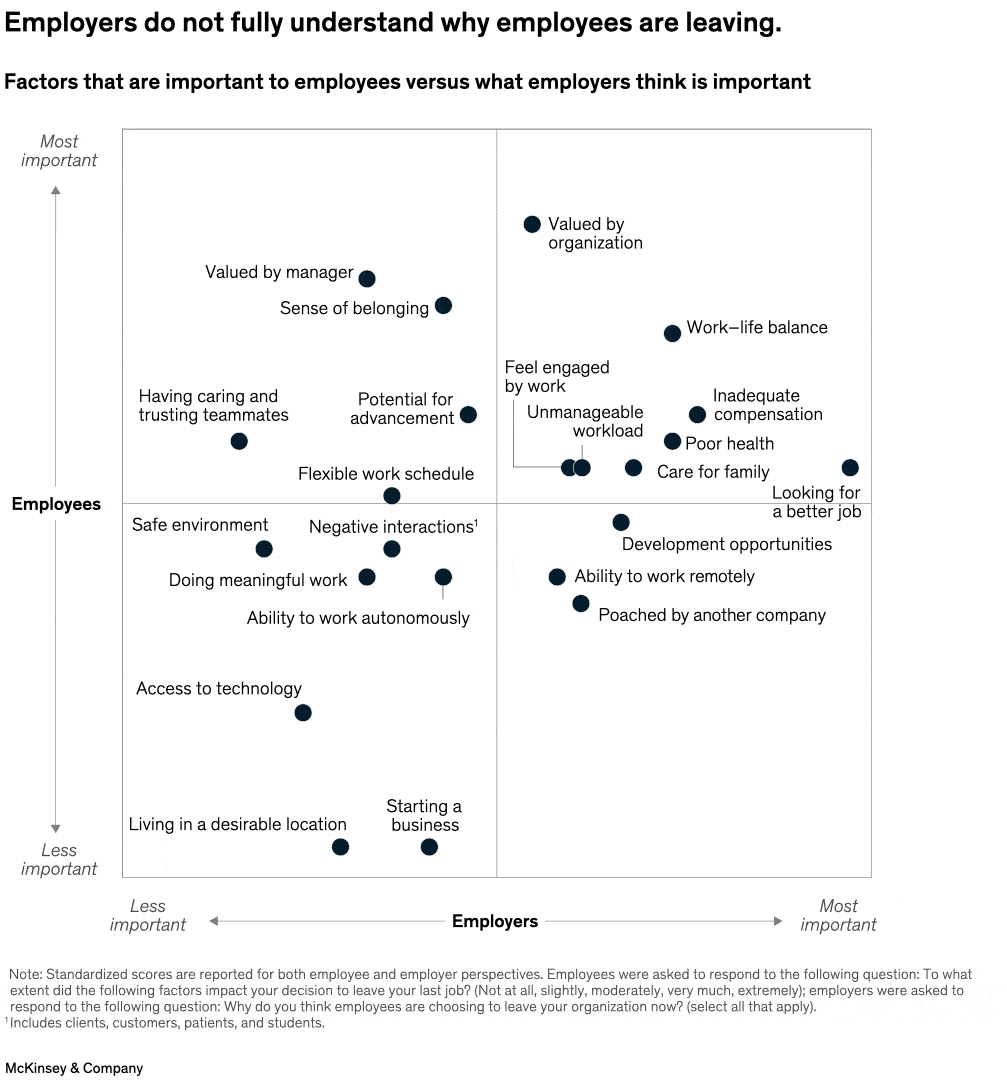Employers may have the wrong idea about what retains employees, according to a survey by partner Asmus Komm and colleagues. Relational elements such as a sense of belonging and feeling valued by their manager—plus a flexible work schedule—are more important to employees than employers thought. Meanwhile, employers tend to focus more on factors such as compensation and work–life balance. Adjusting their strategies could help employers better meet the needs of their employees.

Image description:
A scatterplot shows the differences between the factors that are important to employees and the factors that employers believe are important to employees. The findings show that employees prioritize factors such as being valued by their manager, having a sense of belonging, being valued by the organization, and having caring and trusting teammates over advancement potential and a flexible work schedule, which still rank high. On the other hand, factors such as poor health, inadequate compensation, care of family, development opportunities, and the ability to work remotely are considered less important to employees than employers believe.
Note: Standardized scores are reported for both employee and employer perspectives. Employees were asked to respond to the following question: To what extent did the following factors impact your decision to leave your last job? (Not at all, slightly, moderately, very much, extremely); employers were asked to respond to the following question: Why do you think employees are choosing to leave your organization now? (select all that apply).
Footnote: Includes clients, customers, patients, and students.
End of image description.
To read the article, see “In the spotlight: Performance management that puts people first,” May 15, 2024.